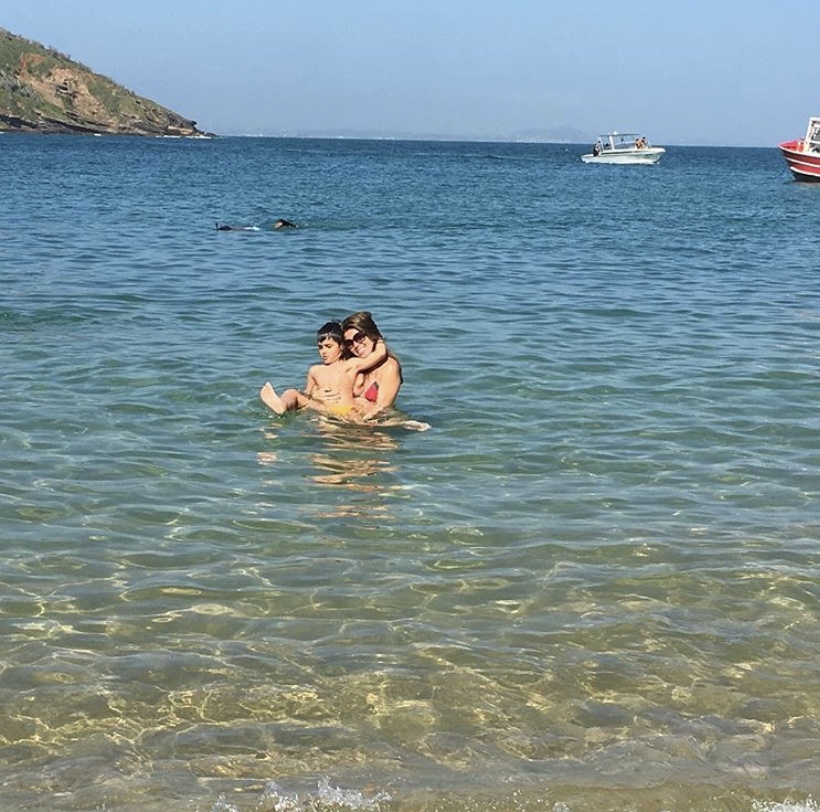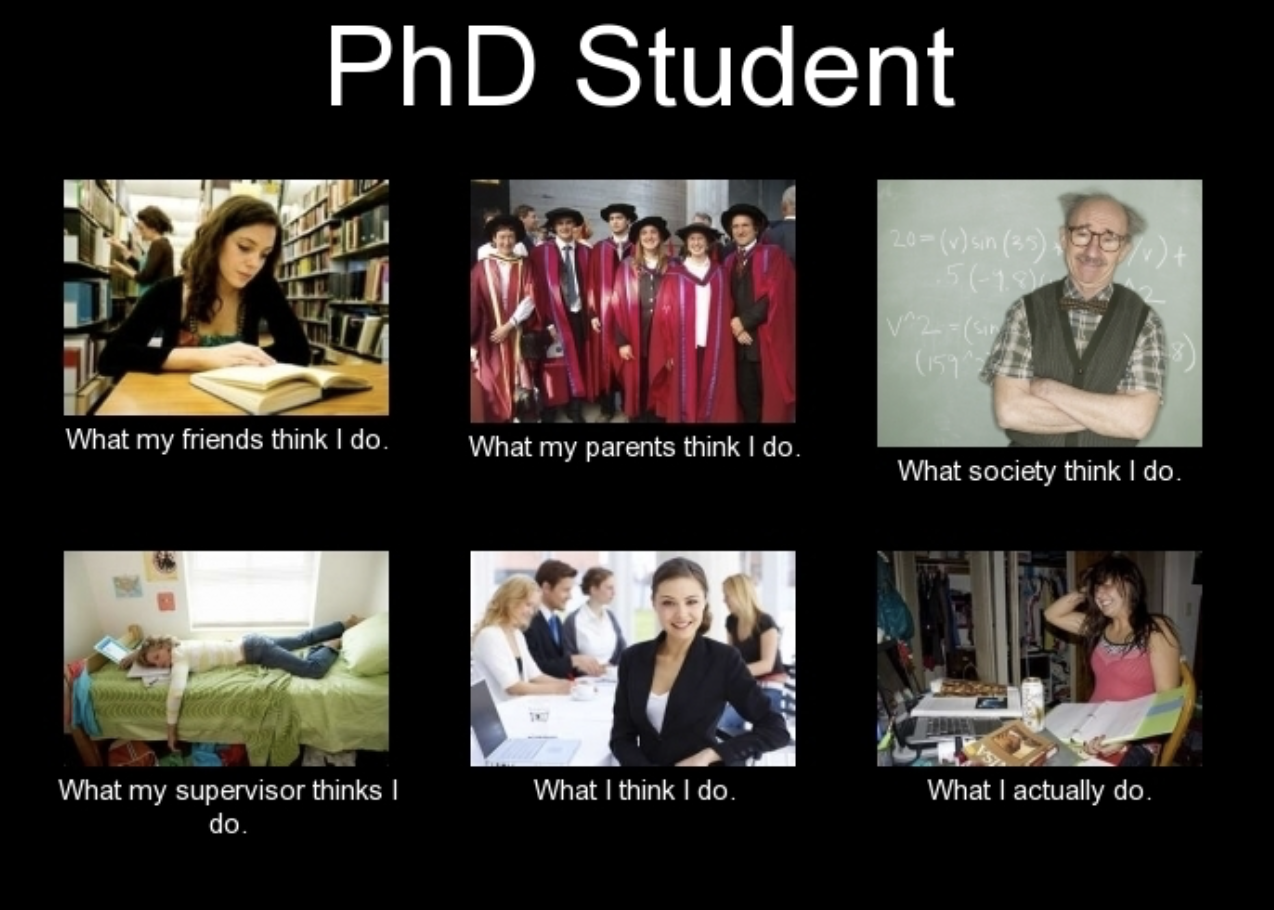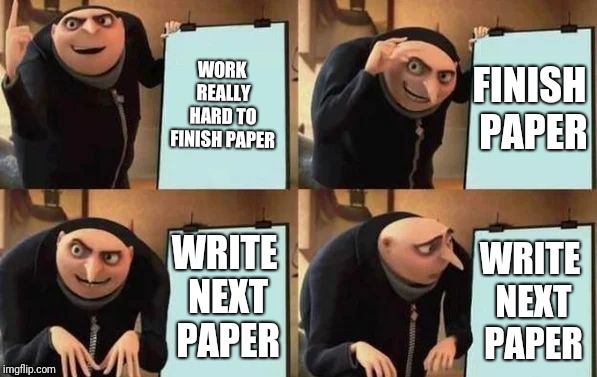By Leila S. Lemos, PhD candidate in Wildlife Sciences, Fisheries and Wildlife Department
I already started my countdown: 57 days until my PhD defense date! Being so close to this date brings me a lot of excitement about sharing with the community the results of the project I’ve been working on the past 4.5 years, and that I am really proud of. It also brings me lots of excitement when thinking about the new things that will come in my next phase of life. But even though I am excited, I’ve also been stressed, anxious and under depression. There is a mix of feelings rushing inside of me right now.
For those who don’t know me, I am originally from Rio de Janeiro, Brazil. I’ve been spending the last years far from my family, friends, language and culture. My favorite hobby always was to go to the beach and swim in the warm ocean. I would do that at least twice a week. Brazil is a tropical place and we can go to the beach all year round.

Being in Oregon is really different. Oregon is gorgeous and I love it here, especially during the summer. However, the fall season brings the rain. Lots of rain, and it only stops around March. The absence of sun (and vitamin D) also contributes to depression. Even during the summer, I cannot swim in the ocean as the water is still really cold.
In addition to all of these factors, a PhD comes with classes, exams, fieldwork, research project, lots of reading and learning, manuscript writing, deadlines and great responsibilities. When you don’t have a scholarship or when it runs out (in my case), you also need to find a way to fund yourself until it finishes. Since last September I have been a teaching assistant for the university to cover my tuition and health insurance costs, and to earn a monthly stipend. The work never ends, and you always have more and more things to do.

A PhD is a full-time job, even if you are still technically a student. Actually, a PhD is a 24-hour job. Even if you are not working, you are thinking about your experiments and/or deadlines. Even if you are not awake, you are dreaming about it. You feel guilty all the time if you are doing things that are not related to your work.
But, it turns out I am not alone. The more I talk to people about the struggles, disappointments, anxiety, impostor syndrome, insomnia, depression, exhaustion of graduate school, the more I find that it is more common than I first thought. I have several friends facing the same problems right now.
I searched for some stats on this topic and I found a relatively recent study (Levecque et al. 2017) that evaluated the mental health of a sample of PhD students (N = 3659) from five different research discipline categories: sciences, biomedical sciences, applied sciences, humanities, and social sciences. PhD students were compared to other three groups: (1) highly educated individuals in the general population (N = 769), (2) highly educated employees (N = 592), and (3) higher education students (i.e., academic Bachelor, Master or Doctoral degree; N = 333). Research participants answered the web-based questionnaire that follows:
Table 1: Prevalence of common mental health problems in PhD students compared to three comparison groups.

Source: Levecque et al. (2017)
It was alarming to me to see some of these results. Here are some of them:
- A GHQ2+ score indicated psychological distress, and the prevalence was about twice as high in PhD students compared to the highly educated general population. PhD students were consistently more affected when compared to all of the other groups.
- They found a significant relationship between psychological distress and the risk of having or developing a common psychiatric disorder (GHQ4+).
- The odds of experiencing at least two psychological symptoms were 34% higher for female PhD students than for males.
- No differences between scientific disciplines were found.
And here’s the funny thing: My PhD project researches stress in gray whales along the Oregon coast. I have been evaluating gray whale overall health by using different tools like photogrammetry, endocrinology and acoustics to monitor these individual whales. The more I read about stress and all the physiological response that occurs within the bodies of all vertebrates, the more I imagine it happening to me and all of the possible consequences. However, I do not consider myself a specialist on the theme yet, so I leave my mental health to a specialist. I have been seeing a psychiatrist and a psychologist and I have been learning that work-life balance is crucial, and it helps us maintain sanity. I have also been learning some “exercises” to help me with anxiety and impostor syndrome. This topic may not be an easy to talk about, but it is extremely important. If you are reading this and identify yourself, contact a professional who can help you. It has helped me.
Institutions should also increase their efforts to systematically map and monitor stressors and its outcomes in PhD students (Levecque et al. 2017). Identifying the problems and working towards solutions will benefit the institutions as students will do a better job.
Right now, I am just trying my best to achieve a work-life balance while I am still getting things done on time. All of my data has been analyzed and now I just need to write my chapters and prepare my defense presentation! It is hard to believe that in only 57 days I will be done.

I feel like I have succeeded in painting a grim picture of life as a PhD student. If you were thinking of going to grad school and now you have doubts about it, stop right there! Grad school is challenging, but it is not impossible. There are many things that will bring you joy in grad school like a successful fieldwork season, a successful experiment, a good grade on an exam you studied really hard for, a compliment from your advisor, a R code that is finally running correctly, or an accepted manuscript in a relevant journal.
By the way… I just had a manuscript of my first thesis chapter accepted for publication and I could not be happier:
Getting a PhD is hard, but it is also rewarding. Also, any path you take in your career will have pros and cons. What determines your success is your resilience and how you deal with the challenges that come. You may be asking if I would still do a PhD if I could go back in time, right? The answer is yes! Even though I have been facing many (personal) challenges I am really proud of my PhD project findings and am glad to be contributing to the knowledge and conservation of these amazing animals.
But please, if you see me around don’t forget:

References:
Costanza T. 2015. 10 memes relate to PhD students. Available at: https://www.siliconrepublic. com/careers/10-memes-relate-to-phd-students. Date of assess: 01/20/2020
Reddit. 2019. Made a meme for my boyfriend who’s doing his PhD. Available at: https://www.reddit.com/r/memes/comments/9fq2pq/made_a_meme_for_my_boyfriend_whos_doing_his_phd/. Date of assess: 01/20/2020
Levecque, K., F. Anseel, A. Beuckelaer, J. V. Heyden, and L. Gisle. 2017. Work organization and mental health problems in PhD students. Research Policy 46:868–879.






